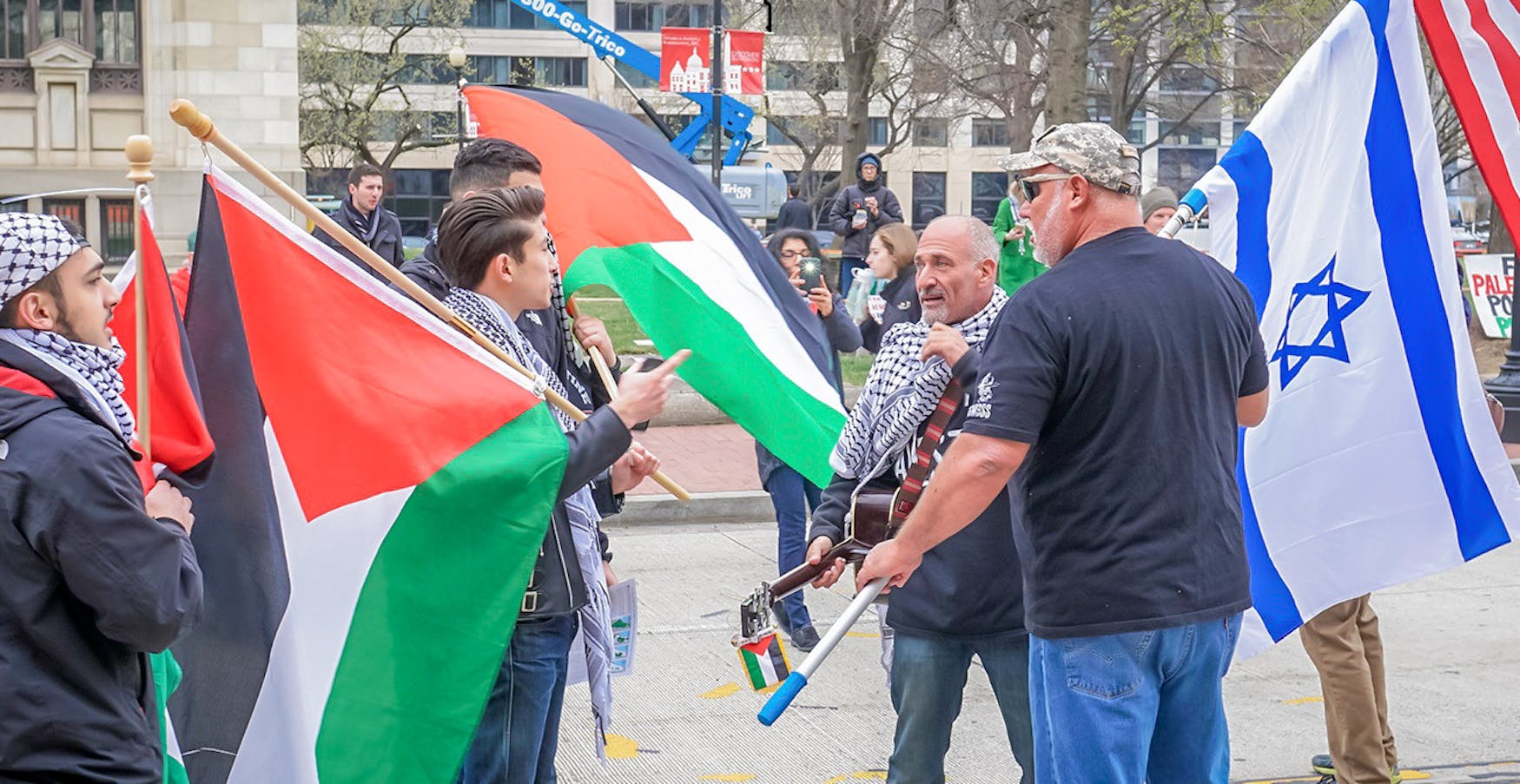Context on Zionism and the war in Gaza
While for many on this campus it remains constantly in our minds, the recent vigil held by Students Justice in Palestine has brought the war in Gaza back into the center of discussion on campus.
Supporters of the Palestinian people have every right to state their views on the matter and to share their anguish at the suffering of civilians in Gaza. My goal in this piece is not to dismiss their views or Palestinian voices, but to provide another perspective and a path forward.
I would like to begin with two caveats. The first, is that I am only a student at this university, not an expert on Israeli history. A more knowledgeable and eloquent voice I recommend is Letters to my Palestinian Neighbor, written by Yossi Klien Halevi in 2018.
The second is a statement of personal bias. I consider myself a Zionist, though I am critical of many Israeli policies, especially West Bank settlements, and I am a believer in a two state solution.
Zionism is the desire for the existence of a Jewish state, specifically in Israel, our historic homeland. Everything on top of this is politics and is not inherent to belief in Zionism. Theodore Hertzel, the founding thinker of Zionism, knew that in the face of the eternal specter of antisemitism,
Jews needed a place where they would be protected without relying on the fragile goodwill of gentile leaders. In this belief he was joined by many great thinkers, including Justice Brandeis, one of the most famous American Zionists. Brandeis viewed Zionism as, “On the whole, the most worthwhile of all I have attempted.” It was never the intent of pre-1948 Zionism to expel the Palistinians, only to have a state for Jews.
Of course, none of this delegitimizes Palestinian nationhood and historical connection to the region. Efforts by both sides to deny the truth of the other’s national identity is a roadblock that must be overcome for any possible peace.
Moving beyond Hertzel’s hopeful ideal Israel to the reality on the ground, any discussion of Israel’s treatment of Palistinians in practice will inevitably come to the issue of settlement and occupation in the West Bank.
To oversimplify a highly complex issue, the status quo that settlers exploit and that is the basis for accusations of apartheid in the West Bank stems from the failure of peace talks in the middle of an intended multi-step process.
Settlements were meant to be eventually incorporated into Israel, so the Jews living there are Israeli citizens.
The surrounding Palestinian lands were supposed to form a new state under Palestinian leadership, and so they are not. The Palestinian-Israelis living within Israel’s post-1967 borders have full legal rights, though like American minorities they face systemic racism that must not be ignored.
Gaza is a different story. It was ceded by Israel in 2005, with Jewish settlers being forcibly removed by the Israel Defense Forces. Hamas took control in 2007 and since then has used the strip as a staging ground for their terrorist activities.
In response, Israel and Egypt have blockaded Gaza for years — which is legal under international law. Hamas is an organization of religious zealots whose sole goal is the destruction of Israel and the murder of Jews.
This is the fifth conflict with Israel they have started, the results of which has only been civilian suffering. They have used the money given to Gaza to enrich their leaders instead of aiding the people, and to build 300 miles of tunnels instead of schools and hospitals.
These tunnels connect to hospitals and their leaders live next to schools. Weapon stores are intentionally placed in crowded civilian areas. This is in large part why so many civilians have died in the recent conflict, but does not justify it.
The attack on Oct. 7 was an unjustified act of violence and hate. It is indefensible. Israel responding with military action was justified.
The civilian casualties, however, are nothing short of horrific and are indefensible as well. A ceasefire is needed, and needed now. But a ceasefire is a mutual agreement.
Hamas is equally responsible for the prolonging of the conflict by refusing to release the hostages and surrender, showing once again that they do not care for the lives of the innocent people they govern.
Blame for the suffering also lies with Egypt, which has refused to accept refugees from Gaza.
Israel says that their aim is to destroy Hamas, but even if they succeed, it will not bring peace to the region.
The only solution, both in Gaza and the West Bank, is a free Palestine alongside a Jewish state, and the only way that will be achieved is through dialogue and mutual concessions.Violence is easy, peace is hard. But I do believe that it is possible.



Please note All comments are eligible for publication in The Justice.